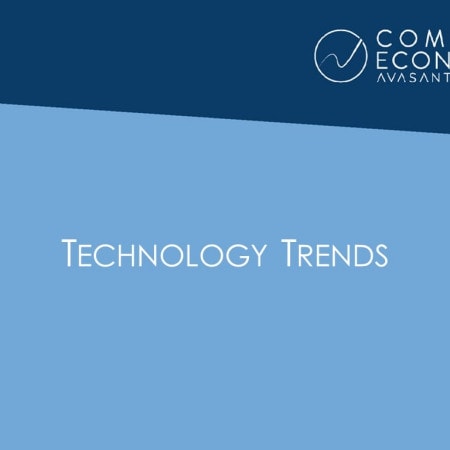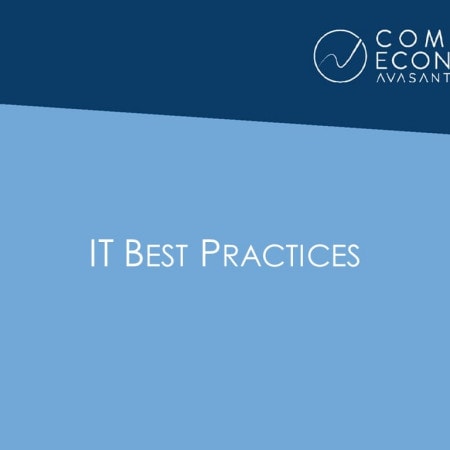-

Open Source Business Applications: Adoption and Participation Trends
In this study, we examine adoption trends and the economic experiences of organizations that have deployed open source business applications. The analysis addresses current adoption levels, current investment activity, return on investment experience, and total cost of ownership experience. We also examine variations in adoption and investment levels by organization size and industry sector. Finally, we look at a related issue: the number or organizations actively contributing to open source development projects. We conclude with key considerations for IT managers who are assessing the suitability of open source business applications. (7 pp., 10 figs.)[Executive Summary]
September, 2008
-

Use of Linux Growing in Corporate Data Centers
It is hard to argue that Linux is not ready for prime time. Some industries, such as the financial services industry, have been actively implementing Linux for several years, and major service providers such as IBM are actively promoting it. Although in most data centers Linux is relegated to a secondary role, some organizations are in the midst of a total transition to the open source operating system.
August, 2005
-

Linux Thrives in the Enterprise
Linux continues to grow in use in corporate data centers. Based on statistics gathered in our 2005/2006 Information Systems Spending & Technology Trends study, this report tracks the rate of adoption of Linux, the factors driving the popularity of Linux, and the ROI and TCO experiences of organizations that have deployed Linux. Finally, this report suggests principles to keep in mind in planning a migration so that the economic benefits of Linux can be realized.
July, 2005
-

The Key Advantage of Open Source
An informal survey of visitors to the Computer Economics website indicates that, in using open source software, "reduced dependence on software vendors" is more important to buyers than low cost. An earlier version of this report first appeared as a free Research Byte on our website. Shortly after publication, the Research Byte was linked by Slashdot, and Computer Economics was deluged by over 50,000 hits in one day. This report includes material originally presented in the earlier Research Byte, along with additional insights gained from the resulting feedback.
May, 2005
-

Key Advantage of Open Source is Not Cost Savings
Computer Economics recently conducted a survey regarding the perceived advantages in the use of open source software. The survey shows that, contrary to common perceptions, the appeal of open source software is not primarily its low cost. By a two to one margin, respondents ranked "reduced dependence on software vendors" as the most important advantage that open source delivers.
May, 2005
-

What Does 2005 Have in Store for IBM and Hewlett-Packard Users?
The New Year confronts both IBM and Hewlett-Packard customers with questions regarding the future paths of the companies. Based on user surveys and our analysis of the two companies, Computer Economics has developed forecasts of the strategies the two companies will be following in the coming year. The one clear message to both sets of customers is that market forces are continually forcing IBM and HP to recreate themselves in ways that will allow them to fight off growing competition. Click here to purchase. - $125 (USD)
January, 2005
-

The Business Case for Linux Deployment
Linux has many advocates for use both in servers and on the desktop. The question arises, however, that in view of ongoing legal, financial, and technical controversies whether Linux is an effective enterprise-level strategy. Although there are a number of concerns in regard to Linux adoption, including legal challenges, return on investment, and the cost of ownership, many organizations find the economics of Linux to be positive. Click here to purchase. $95 (USD)
October, 2004
-

Open Source in the Enterprise
Today, more corporate enterprise IT organizations are making the decision to adopt open source technology as viable products emerge, and as executives face increased pressure to drive costs out of the IT side of the business. Further, a key to open source becoming a viable element of corporate IT strategy is the fact that an appropriate support infrastructure and business model has emerged. Open source software alternatives exist for practically every enterprise software infrastructure need. But is your business ready for open source technology? No doubt, there are opportunities and challenges. This article looks at some of the best practices for knowing when to adopt and when to avoid open source software, and offers some advice on setting corporate policies that will guide your employees on the use of open source software. Click here to purchase. - $99
October, 2004
-

Effectively Managing Open Source Software in the Enterprise
Maintaining control over open-source software in the enterprise is an important management issue, especially considering the current SCO versus IBM battle over Linux. Given that the use of open-source software is on the increase, we recommend that policies be put in place to mitigate the risks to IT.
August, 2003

 Grid View
Grid View List View
List View